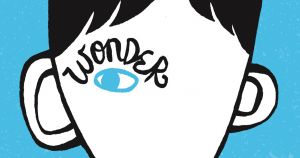
The Real Narcolepsy
Bad depictions in popular culture foster the narrative of the lazy narcoleptic: They’re lazy. They’re late/unproductive/lethargic employees. They’re uncaring lovers or absent friends. And so on and so on.

Bad depictions in popular culture foster the narrative of the lazy narcoleptic: They’re lazy. They’re late/unproductive/lethargic employees. They’re uncaring lovers or absent friends. And so on and so on.

Pete’s autism is portrayed over and over again as being non-stop pain and suffering. That got incredibly hard to read; do people really think this is what autism is like?

We have so few stories—especially lighthearted ones—with wheelchair-using characters that I’d hoped I’d be able to recommend I Funny, but it’s a dangerous narrative wrapped up and presented as “good messages.”

A good ending doesn’t erase the time I spent feeling isolated, excluded, and hurt because of the way Rose is treated.

In the time since I first read Wonder, my understanding of my disfigurement, and the world it occupies, has transformed. How will I now read and receive what was the most personally representative book of my life?